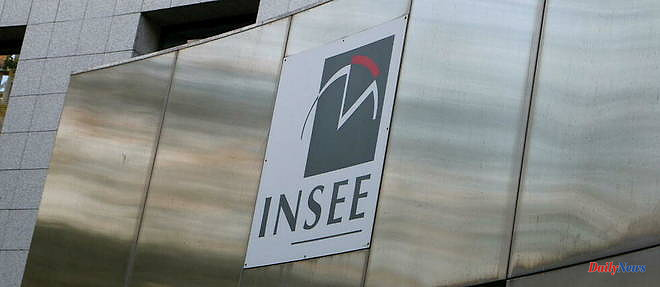French economic activity progressed modestly in the first quarter despite inflation which continued to penalize household consumption, but the difficulties are likely to intensify for the rest of the year. After a 2.6% increase in GDP over the whole of 2022, activity continued to resist with growth of 0.2% in gross domestic product (GDP) at the start of 2023, despite a serious hit brake started at the end of last year and repeated strikes against the pension reform.
This first estimate published by the National Institute of Statistics is slightly higher than its forecast of an increase of 0.1% over the first three months of the year, after a last quarter of 2022 which had stagnated. Economy Minister Bruno Le Maire hailed the "solidity" of the French economy, whose "fundamentals are holding up". "Businesses continue to invest and create jobs, bringing us closer to our goal of full employment," he added.
“Overall, there is still great weakness. High inflation continues to wreak havoc on household food consumption,” Maxime Darmet, an economist at Allianz Trade, told AFP. Inflation rebounded to 5.9% year on year in April (from 5.7 % in March), according to INSEE, which attributes this jump to energy and services. The increase in the cost of food products, now the main contributor to the rise in prices, was on the other hand less rapid: their prices increased by 14.9% over one year after having reached 16% the previous month, which the Ministry of l 'Economics found it "encouraging".
Thanks to the good performance of exports, especially for aeronautics and automobiles, foreign trade contributed positively, by 0.6 percentage point, to GDP growth. This reflects a "reduction of difficulties in supply chains", Stéphane Colliac, an economist at BNP Paribas, told AFP.
The manufacturing industry also showed dynamism (0.7%). As energy production benefited from the reopening of nuclear plants, output rebounded at refineries, with strikes in March against pension reform being "less significant" than those in October last year, detailed Insee.
After this mixed picture in the first quarter, French economic activity is likely to see the clouds gather in the following months. Economists cite a combination of factors: weak household consumption, global economic slowdown, drying up of credit due to the rate hike decided by the European Central Bank, energy crisis which could return to the fore after the summer…
The momentum of business investment has already started to weaken. And household investment in housing continued to fall sharply. "The bite of interest rates will play more over time," predicts Stéphane Colliac. If the second quarter can still hold up thanks to leisure and tourism, "because households have tightened their belts for it", according to him, the second half could result in "stagnation".
INSEE has also revised down the growth figures for the third (0.1%) and fourth (0%) quarters of 2022 by 0.1 point, without this affecting the increase in GDP of 2 .6% recorded for the whole year. Now committed to a strategy of lower public spending to reduce France's public debt, the government is forecasting a 1% increase in GDP over the year. It is more optimistic than the International Monetary Fund (0.7%) or the Banque de France (0.6%).












